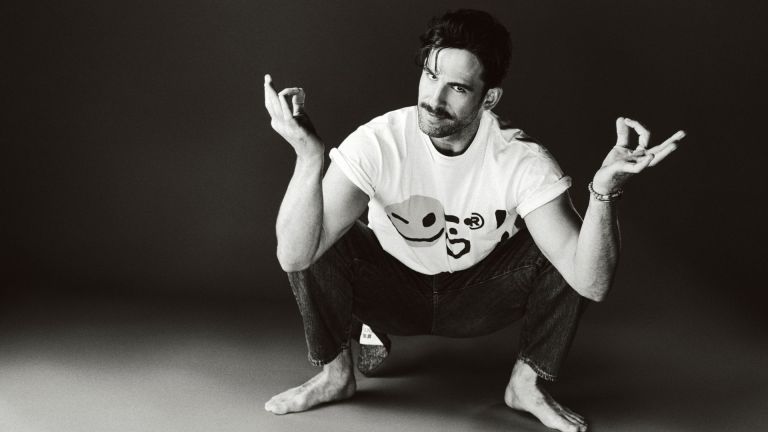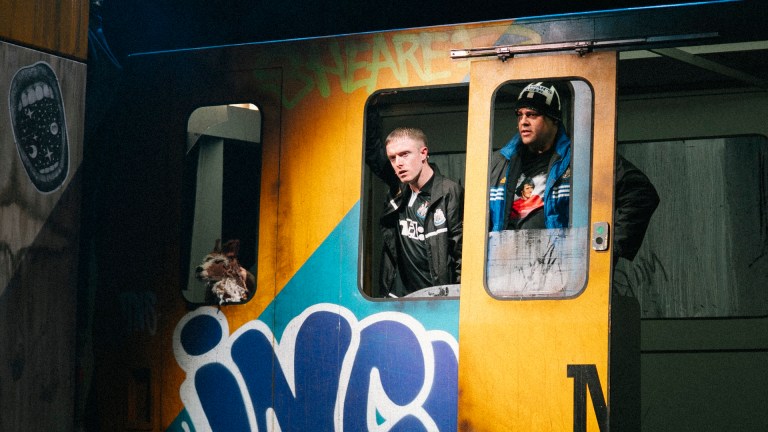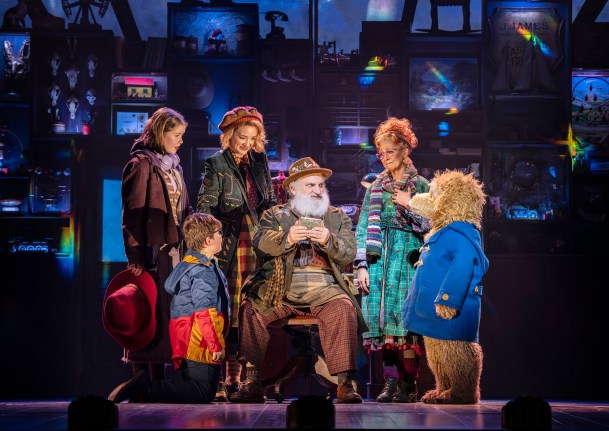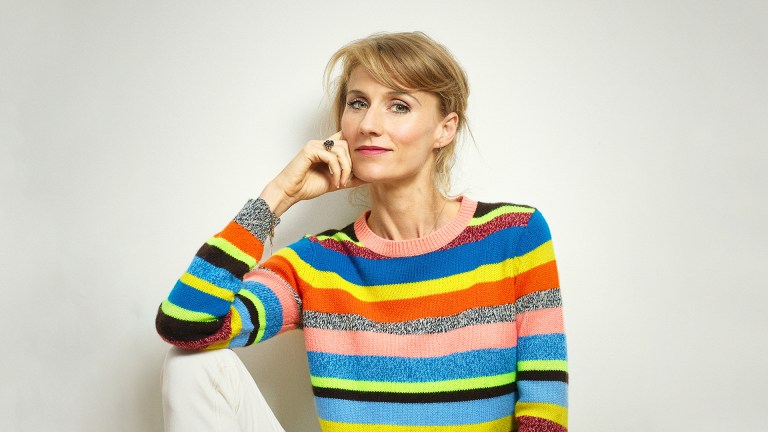Bradley Riches is excited to be back on stage in Babies, a new British coming-of-age musical, because the theatre is where he first found “my people”. The 22-year-old actor is best known for Netflix’s hit coming-of-age drama Heartstopper, in which he plays James, a character who, like him, is queer and autistic. Riches also boosted his profile with a recent reality TV stint. “I walked past some builders the other day and they were like, ‘You’re the lad from Celebrity Big Brother,'” he says, still sounding surprised.
But before that, he trained in musical theatre at Emil Dale Academy in Hitchin. “I did some stage shows when I was younger, but then my voice broke,” Riches says, speaking over Zoom from a “cubby hole” at his Buckinghamshire home. “So I had to work out my lower vocal range. Then I graduated and obviously went into TV. So this is my adult professional stage debut.”
Babies, which has just opened at London’s The Other Palace theatre, definitely presents Riches with a fresh challenge. Written by rising stars Jack Godfrey and Martha Geelan – who also directs – it follows nine Year 11 classmates who are tasked with keeping a fake baby alive for a week.
“That might sound a bit ridiculous,” Riches says with a laugh. “But the show is really about growing up and finding out who you are.” He plays Toby, a gay student who shares his simulated baby with Jacob, the school’s “typical popular boy” played by Nathan Johnston. “They go on a bit of a journey together,” Riches says teasingly.
One of Toby’s classmates is negotiating a fraught relationship with her own mother; another is grappling with their gender identity. Babies explores these multifarious teen experiences in perky original songs that draw from contemporary pop. “Some have a rocky vibe and others are sadder – a little more Olivia Rodrigo,” Riches says.
Growing up in Surrey, Bradley Riches found his own voice at after-school acting classes. He began taking them aged nine because his parents thought, correctly as it turned out, that the creative environment might boost his confidence.







